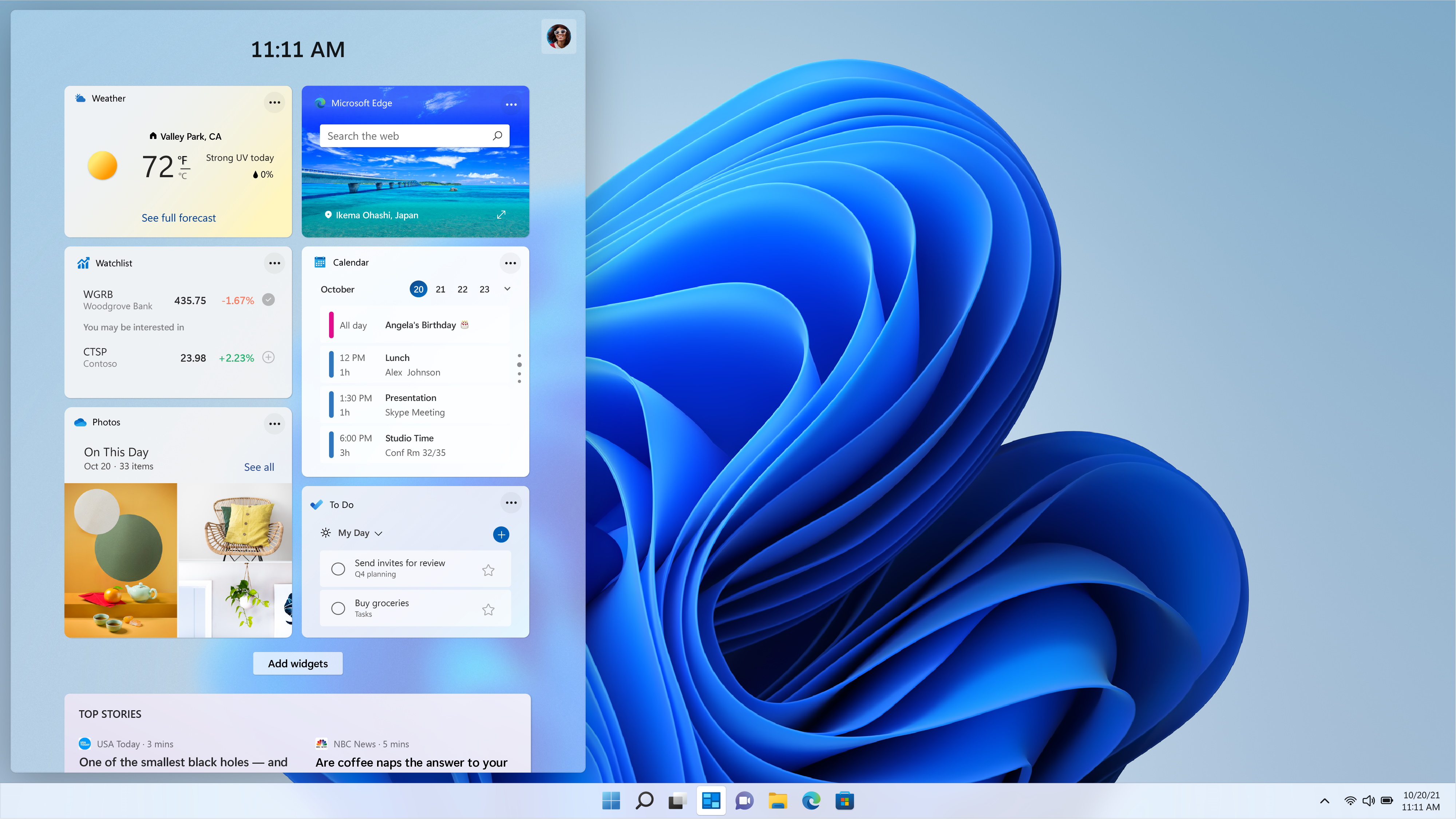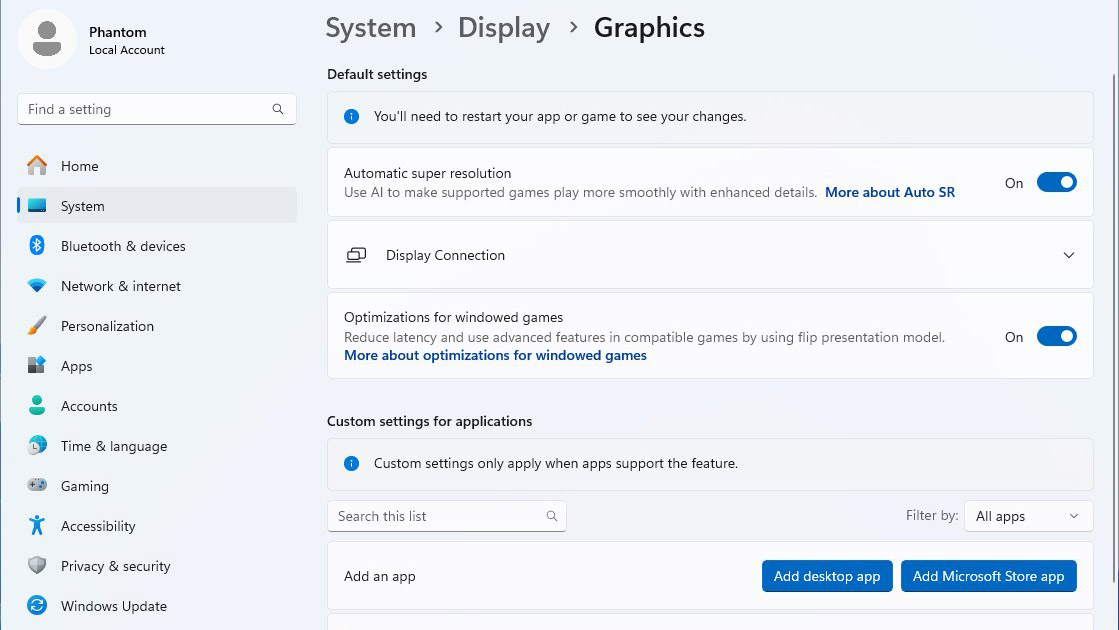A native AI assisted Super Resolution feature is coming to Windows 11
Upscaling for all.

Even if we don't get a Windows 12 release this year, the Windows 11 24H2 update is shaping up to be a big one. With AI all the rage, and both AMD and Intel integrating AI specific hardware into their latest CPUs, AI assisted applications are definitely going to appear thick and fast. Microsoft is developing an interesting one, by introducing an AI assisted super resolution feature that's likely to appear in the 24H2 update.
PhantomOfEarth (via Neowin), a user on the website formerly known as Twitter, posted a couple of screenshots from the Windows 26052 preview build. They reveal Microsoft is working on a new feature it calls Automatic Super Resolution. Enabling it allows you to 'Use AI to make supported games play more smoothly with enhanced details'.
At this point in time it's not working natively, though it can be enabled using ViveTool (H/T @thebookisclosed). That suggests it's very much a work in progress and it remains to be seen just how it will work in practice.
On the surface it looks like a welcome feature. It should allow a much wider range of hardware and software to benefit from upscaling technology. One can imagine thousands of older games benefiting from the feature as those will never receive updates with FSR or DLSS support.
There are few details on Microsoft's solution but presumably it works in much the same way as AMD's Radeon Super Resolution. RSR is a driver based solution used for upscaling in games that don't have FSR support. It uses a spatial upscaling method that doesn't require dedicated AI hardware. RSR is regarded as generally inferior to the latest FSR and DLSS versions, but its advantage is that it works in any game with a full screen output.

Automatic Super Resolution looks like an extension or evolution of Microsoft's Video Super Resolution feature, which can use AI to improve video playback quality.
It's going to be interesting to see how this feature develops and what it means for other upscaling technologies on the market, as well as what hardware requirements in may need. I can't imagine it replacing DLSS, FSR or XeSS, particularly with frame generation any time soon, but native Windows upscaling support for apps that would otherwise never see it sounds like a positive in my book.
Keep up to date with the most important stories and the best deals, as picked by the PC Gamer team.
As always with upscaling technologies, real world testing and analysis will be needed to see if its a feature worth having.
Windows 11 review: What we think of the latest OS.
How to install Windows 11: Guide to a secure install.
Windows 11 TPM requirement: Strict OS security.

Chris' gaming experiences go back to the mid-nineties when he conned his parents into buying an 'educational PC' that was conveniently overpowered to play Doom and Tie Fighter. He developed a love of extreme overclocking that destroyed his savings despite the cheaper hardware on offer via his job at a PC store. To afford more LN2 he began moonlighting as a reviewer for VR-Zone before jumping the fence to work for MSI Australia. Since then, he's gone back to journalism, enthusiastically reviewing the latest and greatest components for PC & Tech Authority, PC Powerplay and currently Australian Personal Computer magazine and PC Gamer. Chris still puts far too many hours into Borderlands 3, always striving to become a more efficient killer.


